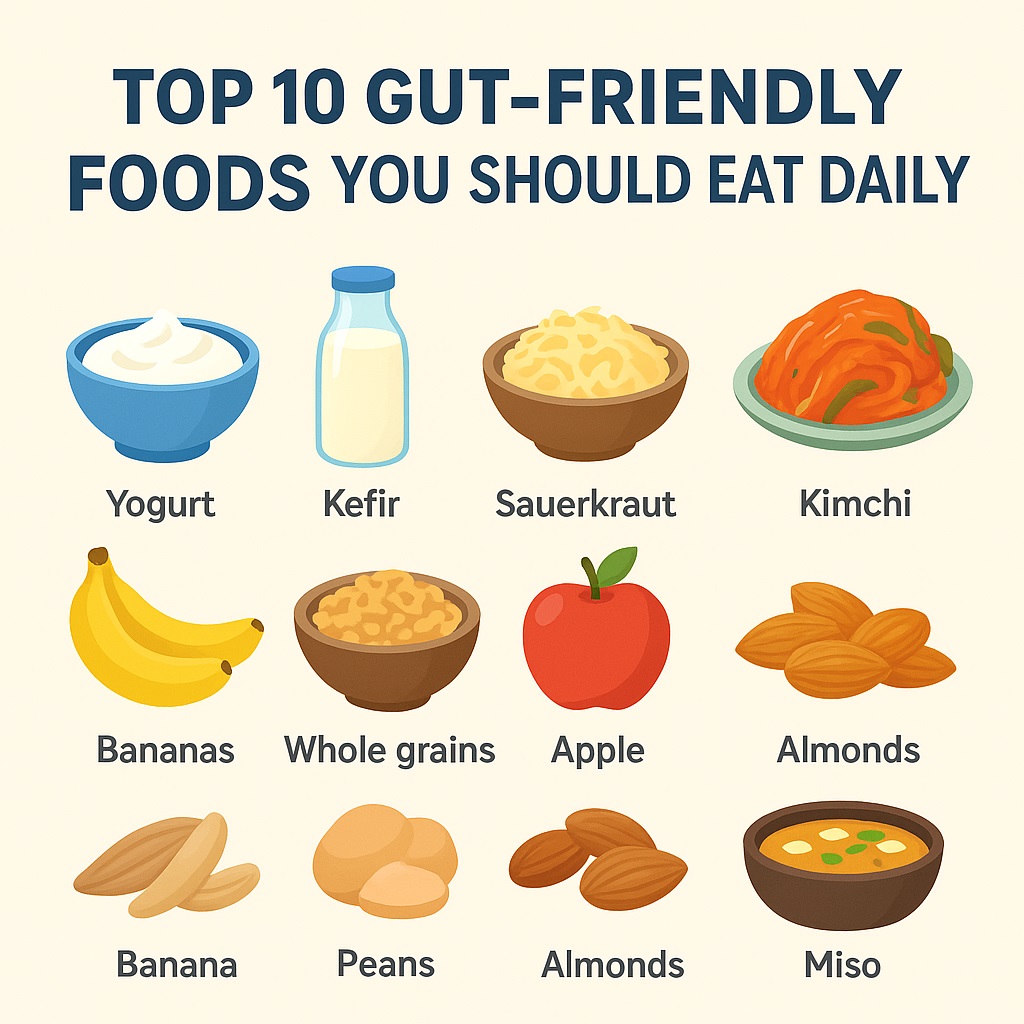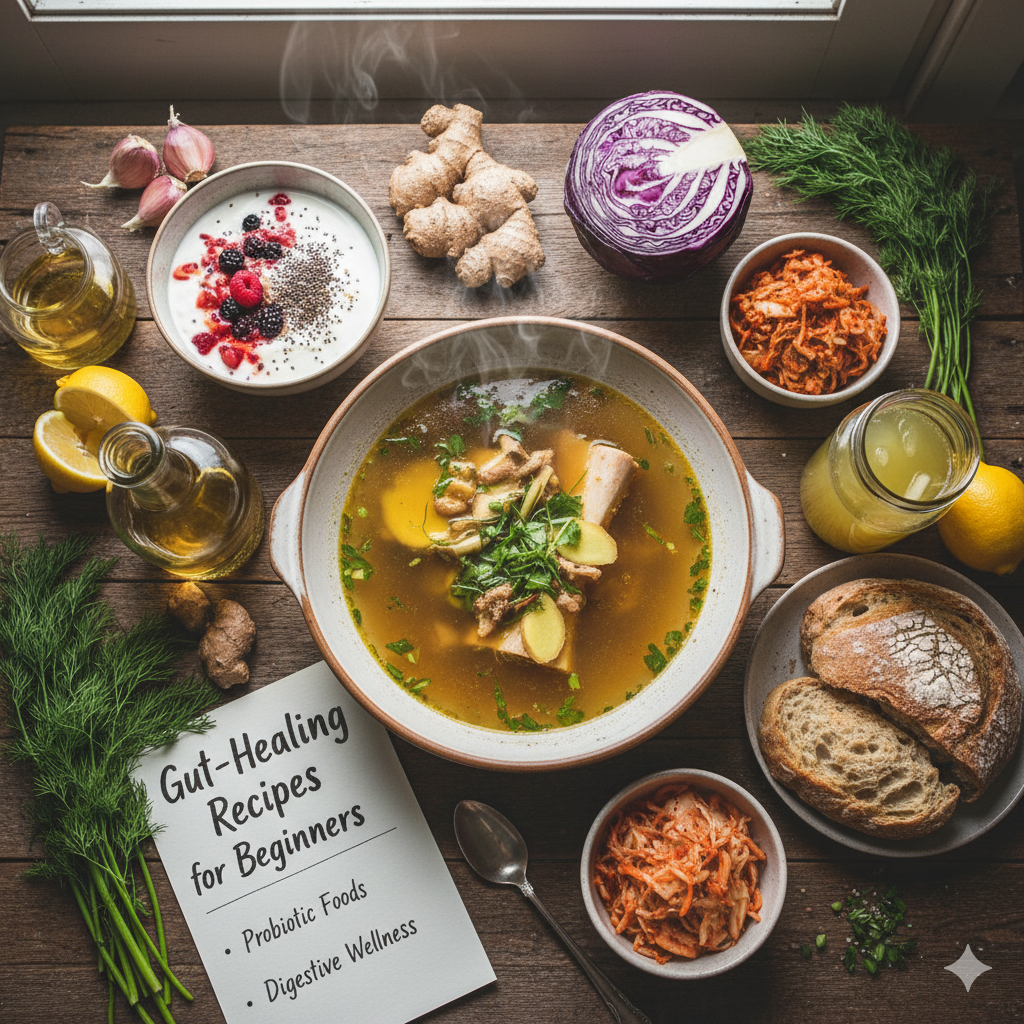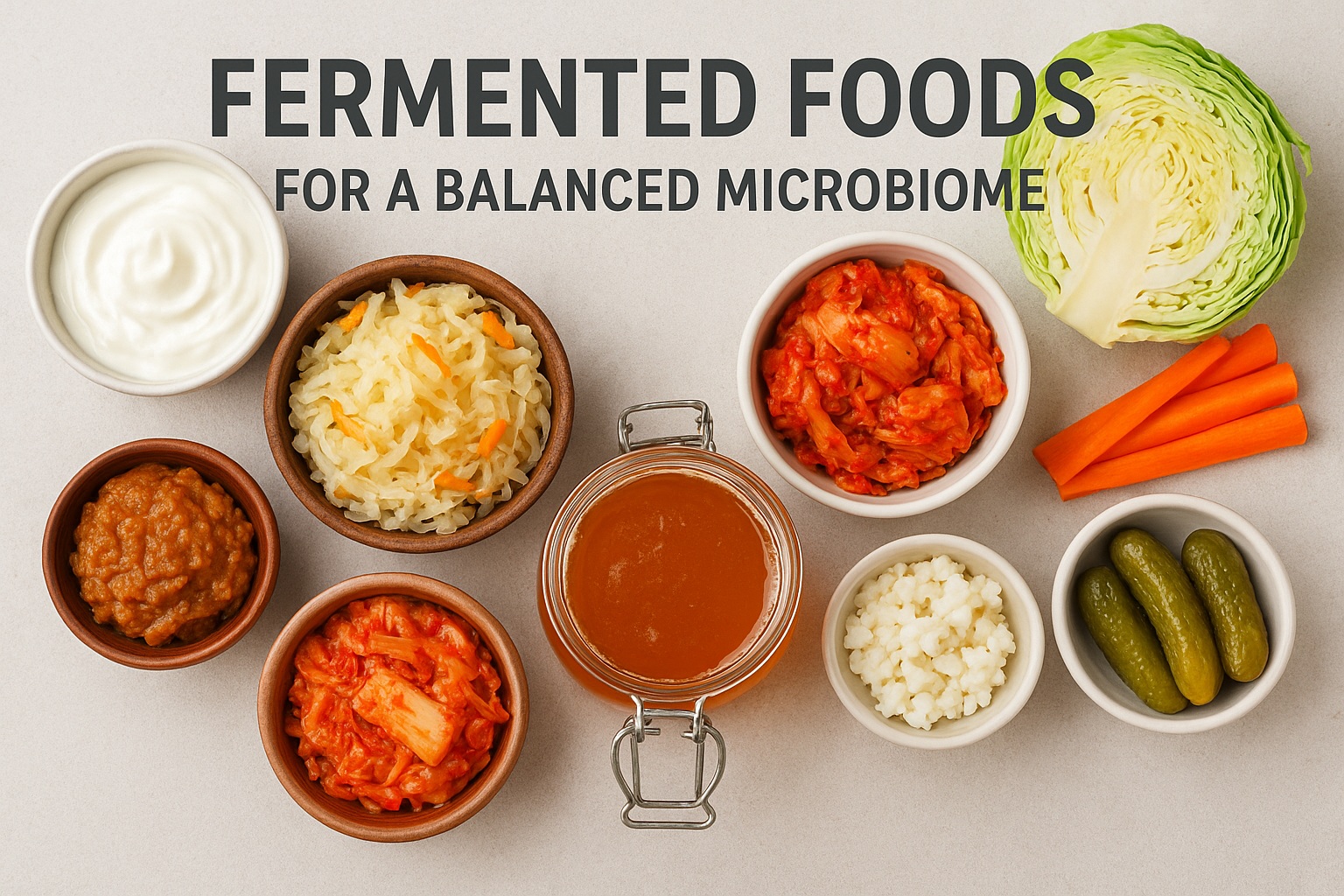Your gut plays a central role in your overall health, and what you eat has a powerful impact on your digestion, energy, and immunity. A healthy diet rich in gut-friendly foods can help balance your microbiome, improve nutrient absorption, and support long-term wellness.
In this guide, we’ll explore the top 10 gut-friendly foods that you should eat every day for better digestion, stronger immunity, and optimal health. These foods are not just about probiotics—they also include fibers, antioxidants, and nutrients that work together to keep your gut thriving.
1. Yogurt – A Classic Probiotic Powerhouse
Yogurt with live and active cultures is one of the most well-known probiotic foods. It contains beneficial bacteria like Lactobacillus and Bifidobacterium that help restore balance in your gut.
👉 How it helps digestion: Supports healthy microbiome diversity, reduces bloating, and improves lactose digestion.
Tip: Choose plain, unsweetened yogurt for maximum benefits.
2. Kefir – Fermented Milk for Gut Strength
Kefir is a fermented dairy drink packed with multiple strains of probiotics, often more diverse than yogurt.
👉 Why it’s gut-friendly: It improves digestion, supports immunity, and is rich in vitamins and minerals like calcium, protein, and B vitamins.
Tip: Great alternative for those who struggle with lactose intolerance.
3. Sauerkraut – Fermented Cabbage Rich in Probiotics
Sauerkraut is cabbage that has been fermented with lactic acid bacteria. It’s a traditional gut-friendly food loaded with probiotics.
👉 Gut benefits: Improves gut flora, reduces constipation, and enhances nutrient absorption.
Tip: Look for unpasteurized sauerkraut, as pasteurization can kill probiotic bacteria.
4. Kimchi – Spicy Korean Superfood
Kimchi, a Korean staple, is made from fermented vegetables like cabbage, radish, and spices.
👉 How it helps: It contains probiotics, fiber, and antioxidants that boost digestion and lower inflammation.
Tip: Add kimchi as a side dish to rice, soups, or salads for a daily dose of probiotics.
5. Garlic – Natural Prebiotic Food
Garlic is not a probiotic itself, but it acts as a prebiotic, meaning it feeds the beneficial bacteria already in your gut.
👉 Gut benefits: Encourages the growth of probiotics, reduces harmful bacteria, and supports immune function.
Tip: Eat garlic raw or lightly cooked for maximum prebiotic benefits.
6. Bananas – Gentle on Digestion
Bananas are rich in fiber and resistant starch, which act as prebiotics for healthy gut bacteria.
👉 How they help: Support digestion, reduce bloating, and promote bowel regularity.
Tip: Slightly green bananas contain more resistant starch, making them even more gut-friendly.
7. Whole Grains – Fiber-Rich for Gut Health
Whole grains such as oats, quinoa, brown rice, and barley provide soluble fiber that supports beneficial gut bacteria.
👉 Gut benefits: Improves bowel movements, reduces constipation, and fuels probiotic bacteria.
Tip: Replace refined carbs with whole grains for a more healthy diet.
8. Apples – A Simple Fruit with Big Gut Benefits
Apples contain a type of soluble fiber called pectin, which functions as a prebiotic.
👉 How they help digestion: Promote the growth of healthy bacteria, regulate cholesterol, and enhance gut motility.
Tip: Eat apples with the skin on to maximize fiber intake.
9. Almonds – Nutrient-Dense Gut Booster
Almonds are rich in fiber, healthy fats, and antioxidants. Studies suggest they act as prebiotics, helping probiotics thrive.
👉 Gut benefits: Improve bacterial diversity, enhance digestion, and provide long-lasting energy.
Tip: A handful of raw or soaked almonds daily is enough for gut wellness.
10. Miso – Fermented Soy for a Healthy Gut
Miso is a traditional Japanese seasoning made by fermenting soybeans with salt and koji (a type of fungus).
👉 Why it’s gut-friendly: Packed with probiotics, miso supports gut balance, boosts immunity, and provides plant-based protein.
Tip: Add miso paste to soups and dressings, but avoid boiling it to preserve probiotics.
How These Gut-Friendly Foods Work Together
A healthy diet that combines both probiotics (live bacteria) and prebiotics (foods that feed bacteria) creates symbiotic support for your microbiome. Together, these foods:
- Improve digestion and nutrient absorption.
- Strengthen immunity.
- Balance blood sugar and weight.
- Reduce inflammation and promote long-term gut health.
Practical Tips for Adding Gut-Friendly Foods to Your Daily Routine
- Start small: Add one or two new foods at a time.
- Mix prebiotics and probiotics: For example, eat yogurt with bananas or kimchi with brown rice.
- Stay consistent: Daily intake is key for long-term benefits.
- Avoid too much sugar and processed food: These can undo the benefits of gut-friendly foods.
Conclusion
Eating a variety of gut-friendly foods every day is one of the best ways to support your digestive health and overall wellness. From probiotic-rich yogurt and kimchi to fiber-packed bananas and whole grains, these foods provide the balance your microbiome needs to thrive.
By incorporating these top 10 foods into your healthy diet, you’ll improve digestion, boost immunity, and enjoy lasting energy and vitality.
Your gut is the foundation of health—feed it wisely.




